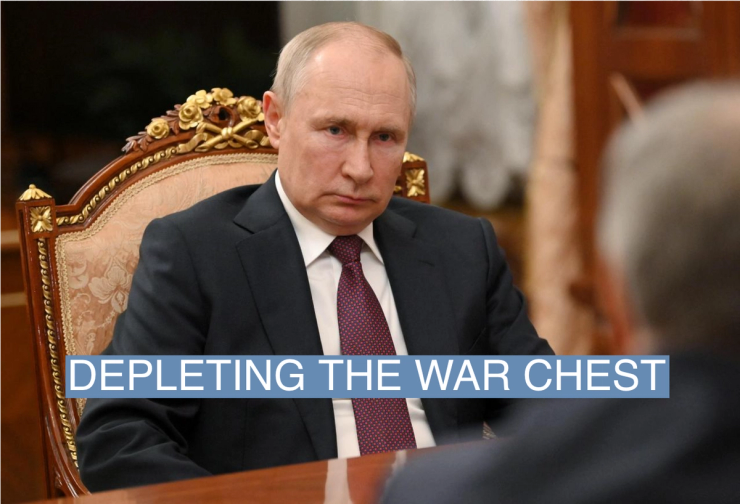The News
Russia has been pumping money into its economy in an attempt to shore up national support for its war in Ukraine.
We’ve collected three key insights into what this state-led spending spree means for the country and the ongoing conflict.
Insights
- The Russian economy, while growing, is not stable. President Vladimir Putin built an extensive war chest to prop up the military in the face of Western sanctions, but that money is now dwindling. National accounts are in a more than $1.4 billion deficit. “As time goes on, the more difficult it gets for them. They will have to make choices, guns versus butter,” Timothy Ash, associate fellow at Chatham House’s Russia & Eurasia program, said in an interview. — The Telegraph
- Putin has run a “merciless cannibalization of Russian economic productivity,” Jeffrey Sonnenfeld and Steven Tian of the Yale Chief Executive Leadership Institute recently argued, and commodity prices are lower across major sectors than they were before the invasion. Oil and gas is being produced in huge supply, but sold at prices so low as to barely break even. “As an extractive authoritarian dictator with state control over 70% of the economy, Putin will never really run out of money since he can always pull the authoritarian equivalent of finding money under the couch,” they noted. — Time
- Oil drives every aspect of Russia’s economy, and the country is something of a “one trick pony,” Robin Brooks, chief economist at the Institute of International Finance, tweeted. “The G7 oil price cap is an existential threat that can halt Russia’s war economy,” he noted. “The West should lower the G7 cap from $60 to $50 and prohibit Greek shipping oligarchs from selling their oil tankers to Putin.”
Know More
The Russian economy is expected to grow 2.5% this year, according to the country’s central bank. The New York Times reports that the state-led spending spree has fueled concerns about the country’s financial stability from some economists and the country’s own central bank chief.
Putin has been throwing incentives at poorer Russians in hopes of maintaining their support for the invasion of Ukraine, increasing pension funds and salaries, and subsidizing mortgages. Meanwhile, lending is on the rise, and corporate loans saw a 19% jump this year, the Times noted.


